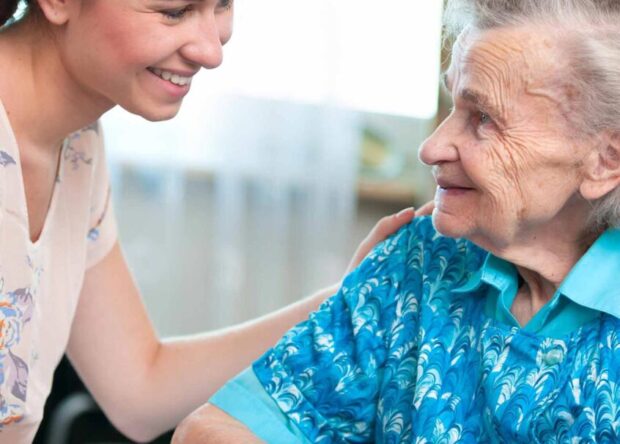Assisted Living In Ft. Myers, FL
Find local care advisors
Quick Navigation
On The Page
Find the Best Assisted Living Near Ft. Myers, FL
A Ft. Myers, FL, assisted living facility may be a consideration for many seniors who are unable to live completely independently. These long-term care communities provide help for people who may not be able to keep up with the responsibilities of their home or who wish to live in a group setting and reduce some of the isolation many elderly feel. This guide provides more information about Ft. Myers assisted living properties and help for families to pay for the monthly fees. It also contains more information about the city. Finding the right assisted living facility can be challenging, especially for people who are unfamiliar with the town. A local Ft. Myers senior care advisor can help you and your family narrow down your choices for assisted living and learn more about what to expect during the transition.
Your Ft. Myers, FL Senior Living Advisor
What is the Cost of Assisted Living in Ft. Myers, FL
The average monthly assisted living fees in Ft. Myers are $4,334, although each facility will differ according to its amenities and location. A local Ft. Myers senior care advocate can help you understand how each community structures its pricing and help your family find ways to help cover the costs.
A good way to estimate how much your senior can contribute toward assisted living is to determine a monthly budget of their current expenses. Include their rent or mortgage, transportation, groceries, utilities and other household necessities, and discretionary spending. Many assisted living properties include a private apartment and meals, light housekeeping and laundry, WiFi and utilities.
Ft. Myers assisted living communities allow seniors to enjoy as much independence as they’re capable of while receiving help with the activities of daily living (ADLs) as needed. Your senior may need help with:
- Selecting appropriate clothing and getting dressed
- Personal care, such as shaving or putting on make-up
- Mobility assistance, including transfers and lifts
- Medication management
- Preparing nutritious meals or eating
Assisted living communities are staffed 24-7 with professionals trained to respond to the needs of residents with compassion and dignity. If your loved one can mostly take care of themselves and their home, they’ll be afforded the same level of independence in assisted living. However, should their health decline or needs change, then their personal care plan can be adjusted to include extra assistance with ADLs.
Bringing up the topic of moving into an assisted living community can be a touchy one for many families. Some people may find it easier to monitor their loved one’s ability to take care of themselves on their own and bring the topic up if they notice a change in their senior’s ability to take care of daily tasks. Or, if your loved one suffered an injury or developed a chronic medical condition, they may be more comfortable with the help a Ft. Myers assisted living property provides. If you need help finding a good assisted living fit, a local senior care advocate can help you explore the features of different properties.
What Should Every Senior Know About Living in Ft. Myers, FL?
Ft. Myers feels like an island paradise, with white, sandy beaches and a clear blue ocean. It’s located on the state’s southwest coast, along the Gulf of Mexico. Ft. Myers, while one of the largest cities on the coast, still preserves a peaceful way of life, with plenty for beachcombers to do and some of the best golf courses in the country. Furthermore, Florida may be especially attractive to seniors, as the state has no income tax nor tax assessed on withdrawals from retirement accounts. There is also no inheritance or estate tax.
Ft. Myers Weather & Climate
Ft. Myers is warm and sunny year-round, with 271 days of sunshine per year and summer highs in the low 90s. Winters are mild, with lows in the 50s and no snow. However, the area may be vulnerable to tropical storms and hurricanes.
Local Hospitals & Notable Medical Care
Ft. Myers seniors may receive 24-hour treatment at the Lee Memorial Hospital or the Gulf Coast Medical Center, centrally located and with several affiliated treatment centers throughout the city.
Transportation
The city is served by LeeTran, Lee County’s public transportation system. It’s a fixed-route bus system, plus a trolley in the downtown area. Seniors over 65 may receive a discounted pass. LeeTran also operates an ADA paratransit service.
Arts, Culture & Recreation
Although Ft. Myers is known for its beaches and golf courses, there are plenty of art and cultural opportunities in the area. The River Walk features several local art galleries and performance venues, a popular walkable part of the city. Or, seniors may wish to attend ArtFest, an annual city-wide art festival that happens every February.
Additional Senior Living Care Advisors near Ft. Myers, FL

Care assessment tool
Access our free senior care assessment tool, which can help you evaluate the specific needs and requirements of you or your loved one. By answering a series of questions, you’ll receive personalised recommendations and insights to aid in the decision-making process.
Take the AssessmentFAQ About Assisted Living in Ft. Myers, FL
Yes, many assisted living properties welcome pets and have private outdoor areas where residents may walk them. Ask your local Ft. Myers senior care advisor to help find pet-friendly assisted living facilities near you.
Each assisted living property will have its own social calendar, but many share similar social activities and opportunities. Many properties have a fitness center or a pool, and group exercise classes may be popular. Hobby groups like woodworking, gardening or even a book club are common, as are group outings to go see plays.
A nursing home provides dedicated, on-site medical care for residents, while assisted living residents typically receive medical treatment off-site. Both types of properties offer ADL assistance, but many assisted living residents are more independent than those in nursing homes.
Assisted Living in Cities Near You








